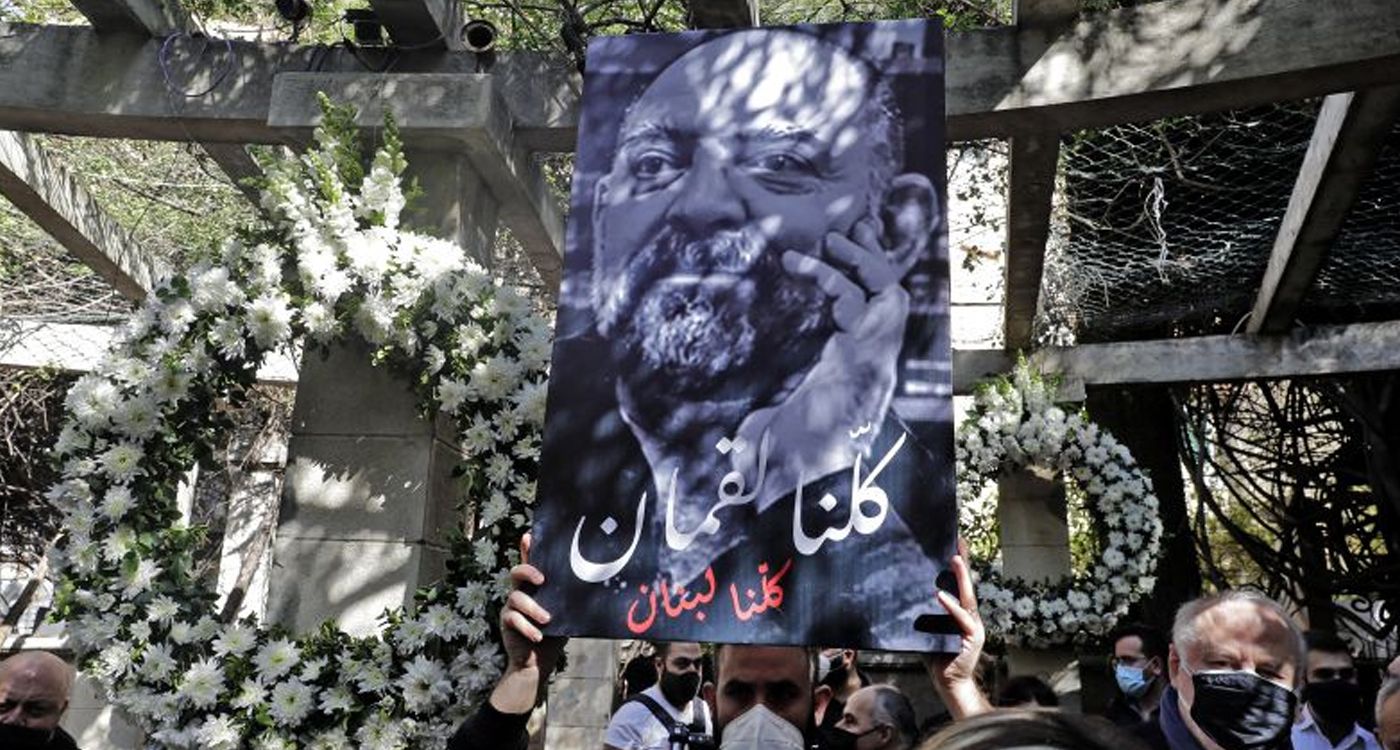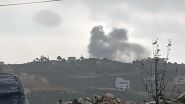
This Sunday, on the fourth anniversary of his assassination, Lokman Slim—a notable Shiite intellectual and free speech advocate—was commemorated in Beirut by his family, friends, and colleagues. This came just days after it emerged that investigative judge Bilal Halawi had decided to "close the file" on the case until "new elements emerge."
An unsurprising development in a country whose history is paved with blatant political assassinations and the eternally floundering "investigations" that accompany them—more than a dozen since 2005 alone: Mohamed Chatah, Gibran Tueni, Samir Kassir. All stalled. The investigation into the port explosion. Stalled. Now, it seems, Lokman Slim will be the latest to join this grim group.
An Advocate for History
Born in 1962 in Haret Hreik, Slim dedicated his life to challenging Lebanon’s “willful amnesia” culture—its refusal to fully acknowledge its past and the perpetual impunity that this denial enables.
He was an advocate for history, believing that a shared understanding of the past was essential to defining the present and building a common future.
In 2000, alongside his sister Rasha Al Ameer, he founded Dar Al-Jadeed, a publishing house committed to releasing works free from ideological and partisan censorship—often those that had been deliberately marginalized.
Four years later, he and his wife, Monika Borgmann, established Umam Documentation and Research, a center dedicated to preserving Lebanon’s historical records, particularly those relating to the civil war. Slim saw this work as a means of confronting the country’s past in order to build a foundation for justice.
Known for his secular, anti-sectarian stance, he launched Haya Bina in 2005, following the end of Syria’s occupation. The civil society organization sought to encourage electoral participation to reform Lebanon’s confessional political system.
Slim envisioned a modern, secular state built on a shared Lebanese identity—one that could challenge the country’s kleptocratic za‘im (Lebanon’s ruling dynasties) and the sectarian parties that sustain them. Yet, like so many before him who sought to change Lebanon’s trajectory, he met with opposition, intimidation, and ultimately murder.
Slim was an outspoken critic of Hezbollah, particularly for its support of the Assad regime during Syria’s war. As a result, he was regularly targeted by Hezbollah and its supporters, who branded him a "Shiite of the embassies," alleging that he was a puppet of Washington.
In 2020, a group of Hezbollah supporters surrounded his home in Haret Hreik, vandalized it, and plastered its walls with posters accusing him of treason.
The Private Murder of a Public Intellectual
On the morning of February 3, 2021, Lokman Slim set off to visit a friend for lunch in the southern Lebanese village of Niha. As he passed through Khaldeh, a town on Beirut’s southern outskirts, surveillance footage later obtained by investigators showed three vehicles—each fitted with false number plates—begin to follow him.
After spending the day with his friend, he left for home that evening at around 8:30 PM, according to local media outlets. He would never make it back.
Roughly 400 meters from his house, his car was blocked by two vehicles, forcing him to stop. Slim was seized, placed in a separate car, and driven 36 kilometers to an isolated country road near Addousieh. His body was found the next morning. A coroner’s report revealed he had been shot five times in the head.
Following the killing, Hezbollah condemned the act in a statement that read, "We ask the judicial and security authorities concerned to work quickly to expose the culprits and punish them."
We do not know who murdered Lokman Slim. Only a judicial investigation could provide a definitive answer. Yet, it is increasingly clear that, once again, the judiciary will fail to do so.
However, some signs point to Hezbollah. Following his assassination, Ali Al-Amine, another Shiite critic of the group, told The New York Times that, given Slim’s well-publicized politics, his past confrontations with Hezbollah, and the location where his body was found, their involvement was likely. But that is all we will ever get—vague allusions and probabilities of culpability, never mind real justice and accountability.
There exists a monster within Lebanon’s inability to define the truth. There is no true history upon which to build accountability or identity, no true understanding of the present upon which to foster cooperation between distrustful partisans, and no true vision of the future upon which the country can set its course.
Slim dedicated his life to fighting this monster, but in the end, it consumed him. He is now just another name on Lebanon’s long list of the murdered-without-murderers—those who die when five bullets are spontaneously fired into their head or when their car spontaneously explodes. Lokman Slim gave his life for the truth, and now his death is defined by its absence.




Comments